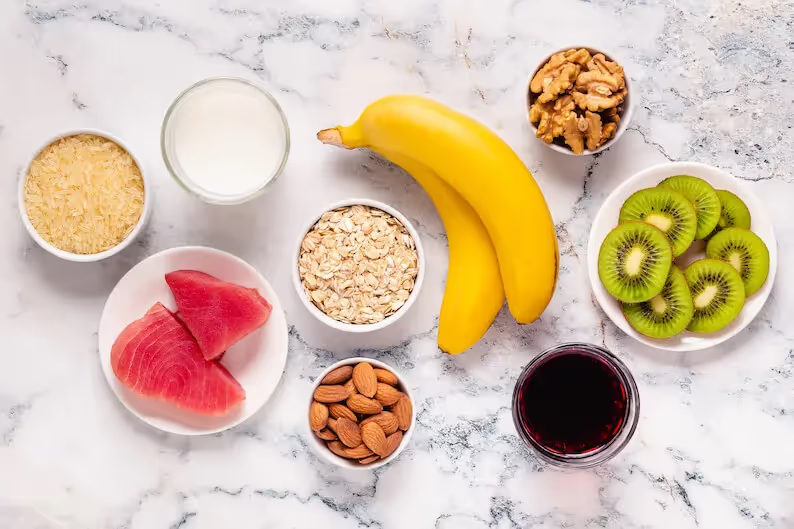Want better sleep? Then you may need to add a few foods to your diet. Most people have experienced firsthand how specific foods and drinks can affect their ability to get a good night's rest. Both sleep and diet are complex topics, but researchers, including nutritionists and sleep experts, have done their best to discover the best foods for sleep. And although this list of food and drink sleep aides may seem correct in theory, not everyone reacts the same. But if you're one of the 70 million Americans suffering from insomnia, try these foods to help you get to sleep.
Tart Cherries and Tart Cherry Juice
Research shows that tart cherry juice increases sleep time and sleep efficiency for people with insomnia. With the help of cherry juice, you can fall asleep quicker and stay asleep for longer and better. This is because tart cherries contain melatonin and tryptophan, both of which help with sleep because they increase the amount of melatonin (sleep hormone) in the body.
You'll want to be sure to look for 100 percent tart cherry juice, though, as sometimes extra sugar is added because of its tartness. You can also find the sleep aide in pill form to make it more palatable. Tart cherry juice is also known to help fight joint pain associated with arthritis and gout due to its ability to lower blood levels of uric acid.
Nuts
Having trouble sleeping? Try snacking on some nuts before bedtime. Nuts, including almonds, walnuts, and pistachios, contain melatonin which we know is needed for good, quality sleep. However, they also contain magnesium and zinc, which have been shown to help older adults who have insomnia sleep better. This is believed to be because of their ability to reduce inflammation and help lower levels of the stress hormone cortisol, which can often interrupt sleep.
Kiwi
It's a small fruit with mighty health properties, including possessing numerous vitamins and minerals. Studies show that adults who ate two kiwifruits one hour before bed fell asleep 42 percent more quickly than when they didn't eat the fruit. Their total sleep time increased by 13 percent, and their ability to sleep through the night improved by five percent. Kiwis help regulate serotonin levels. Serotonin is a brain chemical that regulates the sleep cycle.
Fatty Fish
Part of a healthy diet, fatty fish, such as salmon, may be good at promoting better sleep. A study found that people who ate salmon three times per week experienced better overall sleep and improved daily functioning. Fatty fish provides vitamin D and omega-3 fatty acids, both of which increase serotonin in the body. Fatty fish is also known to reduce inflammation, protect against heart disease, and improve brain health. It's definitely a dietary staple you want to include in your meal plans.
When trying to improve sleep quality, several factors should be considered. Yes, adding these foods to your diet may help you sleep. Still, you also need to be sure you're not taking any actions known to cause sleep disruptions, such as drinking caffeine late in the day or night, overindulging with alcohol, eating big meals too close to bedtime, or exercising right before bed. All of these can prevent you from getting a good night's rest, even with the help of known sleep aides




